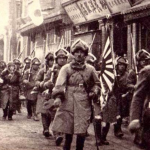
“Thinking about building a brand
strategy is twofold,” Jeremy Tucker, a brand consultant who worked with Future
Majority, told me. “What does the market want? And what does the
organization—the party in this case—what could they stand for?” The Future
Majority team met with more than 300 Democratic officials, operatives, and
activists in 2017 and 2018. The first question they asked, Tucker recalled, was:
Who owns the Democratic Party brand? The Democratic National Committee “very
explicitly, verbatim, said, ‘We don’t own the brand. We don’t want it. We do
presidential elections.’” The Democratic Senatorial Campaign Committee demurred, as well. The Democratic Congressional Campaign Committee, then chaired by Ben
Ray Luján
(who would win a Senate seat in 2020), was “the first to say, ‘What do you
mean, own the brand? Is that possible?’” Tucker told me. Future Majority
started working with the DCCC on its messaging leading up to the 2018 elections
when Democrats retook the House. “They were incredibly helpful and influential
in 2018,” Dan Sena, who was the House campaign committee’s executive director, told
Politico in 2019.
The group used polling and focus
groups, especially targeting the most closely contested House districts and
swing states, asking “a lot of open-ended questions, which is rarely done in
political polling, but that’s how in commercial brand strategy you get to the
underlying consumer psychology of what buyers—or in this case voters—actually
want,” Tucker said. Overall, Future Majority has spent $100 million and polled
over 215,000 voters, according to Riddle, and looked at over 30 million data
points.
(Some of the questions were
abstract to the point of sounding silly: A May
2021 study included a question on which party voters would prefer to have
in charge during a zombie apocalypse, with 60 percent of independents and even
40 percent of Democrats choosing the GOP. “Republicans are perceived as
providing strength and security through aggression,” the analysis concluded,
adding: “Black voters unilaterally chose Democrats because of the belief that
Republicans might shoot them.”)


